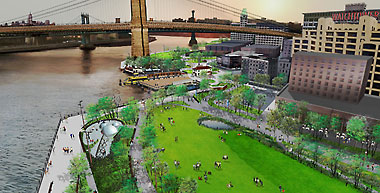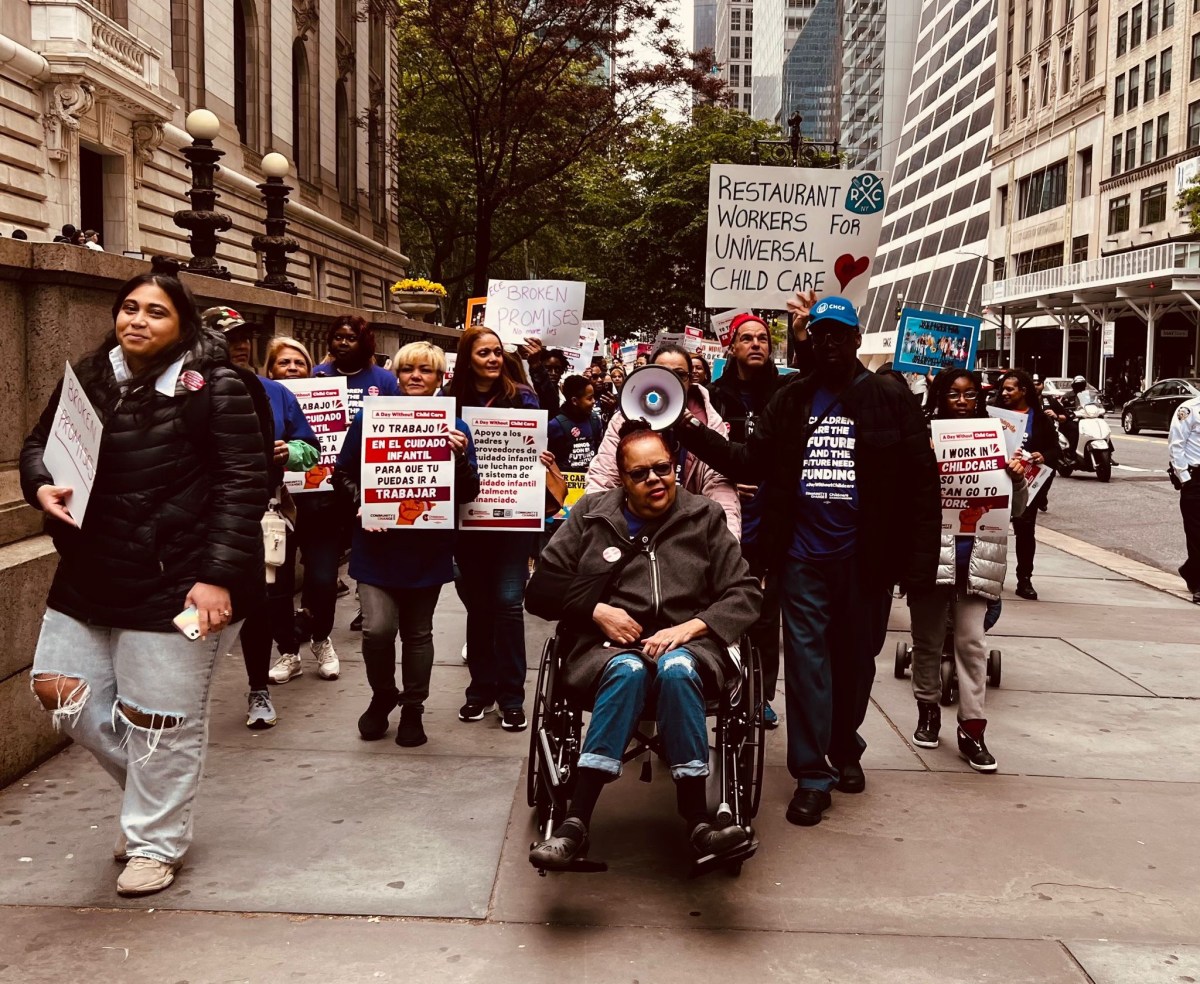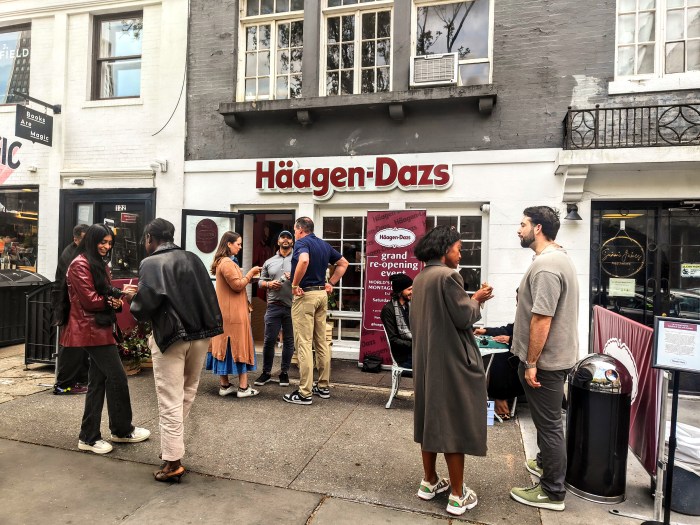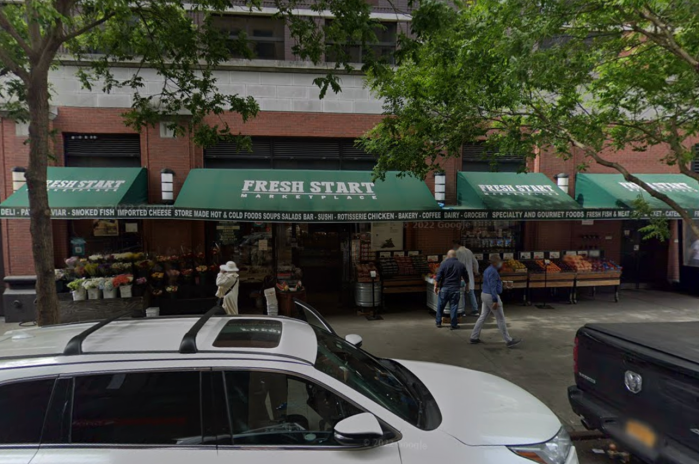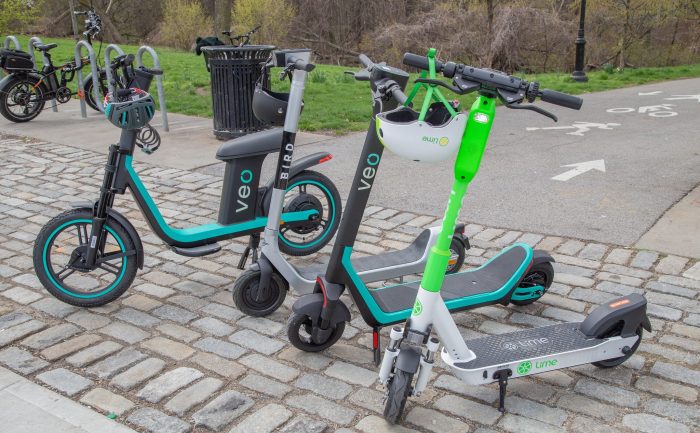Supporters are wildly hailing a deal between the Bloomberg Administration and state lawmakers representing Brooklyn Heights to generate the maintenance budget for Brooklyn Bridge Park by siphoning off future tax revenue from the sale of buildings owned by the Jehovah’s Witnesses.
We had the opposite reaction.
The deal calls for more than one million square feet of manufacturing land to be rezoned to the far more lucrative residential use. Such a rezoning would raise the value of the land by a factor of at least 10. The city would then use the resulting taxes on the newly valuable properties to fund the $16-million maintenance of the park.
The deal is being praised because it promises to raise enough revenue to eliminate the Bloomberg Administration’s prior plan, which called for new luxury housing inside the footprint of park at Atlantic Avenue.
Yes, the new deal is better than the old one. Indeed, we’ve long argued that any housing inside the park renders the 1.3-mile strip of waterfront land not a “park” at all, but a waterfront development with a nice open space component.
But the new deal is still flawed for several reasons:
• At the stroke of a pen, the rezoning would create millions — perhaps $1 billion, according to our report on this week’s page one — of new wealth for the Watchtower Bible and Tract Society, a religious order that has does not pay taxes. We are not persuaded that the Watchtower Society deserves this payday, courtesy of city residents.
• The deal allows Brooklyn Heights residents to get the park of their dreams yet sacrifice nothing. Indeed, the just-inked arrangement is at least the third attempt by park planners to fund their maintenance budget. Two prior schemes — diverting a small portion of local residents’ increased property taxes or creating a “Park Improvement” tax on local property owners — were dead on arrival because both would have forced the well-to-do to pay for the park by parting with a portion of their supposedly hard-earned cash. The selfishness of some residents continues to astound us.
• The deal robs the city treasury of millions of dollars that would normally be set aside for the broad range of services currently provided — to a decreasing degree of satisfaction, by the way — by the city. So instead of extra hours at a library in Brownsville or a new beat cop in East New York, the city is choosing to give Brooklyn’s already richest neighborhood another amenity: a world-class park.
• Most important, the new funding deal enshrines as city policy the original sin of Brooklyn Bridge Park, namely that the ever-swelling maintenance budget must be generated by the park itself. We have long argued that the park should be treated like any normal city park; that its construction and maintenance should be part of the regular budgetary process, subject to evaluation and debate over where resources should be allocated. By creating a separate funding mechanism, the city has essentially told Brooklyn Heights and DUMBO that they don’t need to worry about their park.
After all, in Bloomberg’s New York, worrying about declining city services is something best done by the poor and less-fortunate — or hadn’t you heard?


